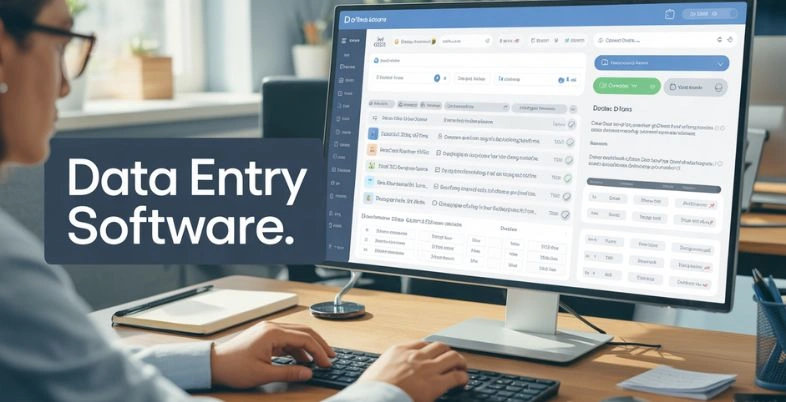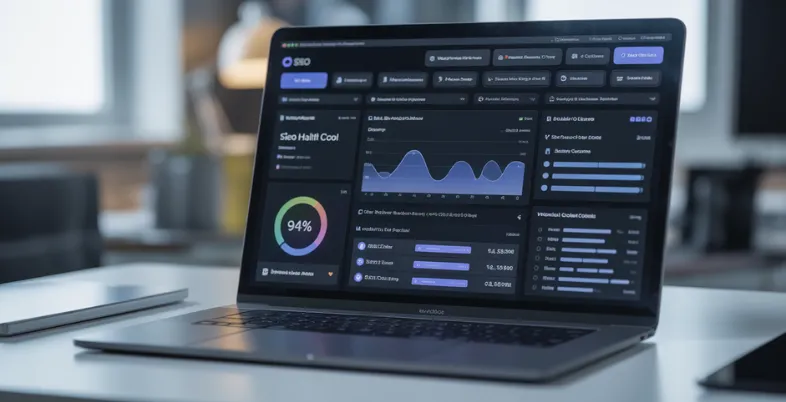With an online landscape where more than 8.5 billion Google searches are made every day, it’s no wonder that standing out from billions of pages is a daunting task. All winning SEO campaigns start not with content or links, but with keyword research—the method of uncovering the words and phrases that people search for when looking for information, services, or goods. This process is made significantly more effective and accurate through the use of Keyword Search software, which help identify high-volume, low-competition keywords essential for SEO success.
It’s not only about what they write; it’s about knowing what they mean, struggle with, ask, and need. Whether you’re exploring eCommerce business opportunities, building niche websites, or managing global campaigns, keyword research is the navigation system that guides your way. Without it, you’re basically writing in the dark.
Keyword research in 2025 is much more than just straightforward search volume metrics. It is a combination of psychology, data analysis, understanding of markets, and content strategy. Google has evolved with algorithm updates such as BERT, and generative search results that emphasize natural language and user context.
This implies that marketers need to dig deeper than ever before—using keyword search tools to find keyword clusters, understand search intent mapping, and align content with conversational search. It’s a challenge, but it’s also an opportunity to create content that genuinely connects with audiences and ranks consistently across changing SERP.
Why Keyword Research Still Matters in an AI-Driven World
Most marketers wonder where keyword research fits in today’s search engine landscape, now that search engines depend more on AI, machine learning, and semantic search. But even in an AI-driven landscape, keywords are still critical. Algorithms can possibly understand context better, but they still require signals, and one of the most powerful tools for this is keyword analysis.
and one of the most powerful is keywords. Well-researched keywords assist in organizing your site structure, writing informative titles, creating engaging metadata, and optimizing content that humans and search engines can easily read.
Another reason keyword research remains vital is that user behavior is always shifting. Trends, seasonal interest, new slang, viral topics, and global events all influence what people search for and how they phrase their questions. Keyword Search Tools that provide real-time search behavior insights can help businesses adjust their content strategies on the fly, ensuring they remain relevant. In a content-saturated digital landscape, keyword research is what separates content that ranks from content that rots.
List of Best Keyword Search Tools
1. SEMrush

SEMrush has always been on the cutting edge of Keyword Search software due to its sheer complexity and versatility. It’s not just a keyword search tool—it’s an entire digital marketing suite utilized by SEO experts, marketers, and big businesses around the world.
Its best feature is the Keyword Magic Tool, which allows users to discover an expansive set of keyword suggestions with sophisticated filters such as keyword difficulty, volume, and CPC. With more than 24 billion keywords in its database and live updates, SEMrush enables you to organize long-tail, phrase-match, and question-based keywords in mere seconds.
It also provides keyword gap analysis, content strategy recommendations, and keyword intent classification, making it a content planning and pay-per-click powerhouse.
Key Features:
- Keyword Magic Tool
- Competitive gap keyword analysis
- Historical trends
- Topic clustering
- AI-powered keyword intent detection
- PPC keyword research
- Google Analytics
- Search Console integration.
Pricing:(Monthly):
- Pro: 139.95 dollars
- Guru: 249.95 dollars
- Business: 499.95
2. Ahrefs Keywords Explorer

Ahrefs is perhaps most famous for its market-leading backlink index, but its Keywords Explorer has become a go-to tool for high-level keyword research. It provides users with access to an enormous keyword database that is drawn from more than 10 search engines such as Google, YouTube, Amazon, and Bing.
Ahrefs has one of the strongest features in its Keyword Difficulty (KD) metric, which is generally regarded as one of the most precise to be found in the industry for its reliance on actual backlink data. With features such as search intent tagging, return rate monitoring, clickstream analysis, and parent topic bundling,
Ahrefs allows SEO planners to move past keyword volume and reveal actionable, profitable keywords that match searcher behavior and business objectives.
Key Features:
- More than 12 billion keywords
- Platform-specific metrics
- keyword difficulty
- Click-through rate, SERP analysis
- Question-based keywords
- Backlink insight.
Pricing (Monthly):
- Advanced: $449
- Lite: $129
- Standard: $249
3. Google Keyword Planner

Google Keyword Planner is still one of the most stable and popular Keyword Search Tools, particularly for new users and advertisers. Because the tool pulls its data straight from Google’s internal databases, users get the most precise and latest information regarding search volume and trends.
Although the interface and metrics are made for Google Ads users, SEOs can gather helpful data such as average monthly searches, competition level, and top-of-page bid ranges. Even with constraints like reporting search volume in ranges unless you are currently running ads, it’s still amazingly handy to find keyword opportunities and measure demand.
Key Features:
- Monthly search volume (range)
- CPC ranges
- Competition metrics
- Qeographic filters
- Device breakdowns.
Pricing
- Free (you need a Google Ads account).
4. Ubersuggest

Created by Neil Patel, Ubersuggest has grown from being a basic keyword suggestion tool to an all-encompassing SEO tool. Its affordability and simplicity make it ideal for freelancers, bloggers, solopreneurs, and small business owners.
It gives keyword suggestions from Google Autocomplete and gives SEO difficulty, paid difficulty, CPC, and volume data. It also features a content ideas tool, competitor domain analysis, and backlink tracking, all within one dashboard.
The biggest factor in making Ubersuggest so appealing is its lifetime access plan and easy-to-use interface, giving users almost all the necessary SEO features for pennies on the dollar compared to alternatives.
Key Features:
- Keyword ideas
- SEO difficulty scores
- SERP analysis
- Content suggestions
- Domain overview
- Historical trends
- Backlink data.
Pricing:
- Individual: $12/month .
- Business: $20/month
- Enterprise/Agency: $40/month
Suggested Read: AI Tools for Content Writing.
5. KWFinder (Mangools)

KWFinder by Mangools is among the top keyword research tools to discover long-tail, low-competition keywords. It has a visually stunning interface without any compromise on features or precision. Users enjoy a perfectly balanced combination of volume statistics, keyword difficulty rating, CPC information, and thorough SERP analysis.
Its capability to handle local keyword research makes it worth gold for companies targeting specific geographies. Moreover, it connects perfectly with the Mangools suite-providing users with SERPChecker, SERPWatcher, and LinkMiner, which broadens the focus to competitive monitoring and link building.
Key Features:
- Long-tail keyword discovery
- Keyword difficulty index
- Historical search trends
- Location-based targeting
- SERP snapshots.
Pricing:
- Begins at $29.90/month
- Full access to the Mangools SEO suite is included.
Also Read: Affiliate Marketing Software
6. Moz Keyword Explorer

Moz Keyword Explorer is a component of the broader Moz Pro toolset and stands out among Keyword Search Tools for its ability to help users discover high-opportunity terms with substantive search intent. The secret sauce of Moz is its Priority Score—a proprietary mix of CTR, keyword volume, difficulty, and relevance that assists marketers in making more informed decisions quickly.
Moz also provides organic CTR metrics, which offer a clearer view of how often users actually click on organic results (useful in SERPs filled with ads or featured snippets). It’s especially helpful for SEOs and content marketers who value clean UI, actionable metrics, and trusted data.
Key Features:
- Priority Score
- Keyword suggestions
- Organic CTR estimates
- SERP analysis
- Opportunity scoring.
Pricing:
- Starter – $49/mo ($39/mo yearly)
- Standard – $99/mo ($79/mo yearly)
- Medium (Most Popular) – $179/mo ($143/mo yearly)
- Large – $299/mo ($239/mo yearly): 3 user
7. AnswerThePublic

AnswerThePublic is different from other keyword research tools because it prioritizes user intent and question-based searching. It compiles Google Autocomplete data and displays search queries as maps of questions, prepositions, comparisons, and alphabetical suggestions.
This makes it a superb tool for bloggers, content creators, and SEO writers who wish to respond to their visitors’ queries directly. While it lacks common keyword metrics such as CPC or volume, its strength comes in revealing novel, frequently missed long-tail keywords that are full of intent.
Key Features:
- Visual keyword cloud
- Question discovery
- Search suggestions
- Data export
- Integration with keyword volume tools.
Pricing:
- Individual: $5/month – 7-day free trial.
- Pro: $49/month – 7-day free trial.
- Expert: $99/month.
8. Serpstat

Serpstat is a growth-oriented SEO platform that integrates keyword research, rank tracking, backlink analysis, and site audit tools. What makes Serpstat unique is its single-dashboard approach and feature to group keywords, monitor trends, and research domain competitors.
It gives a balanced view of keyword difficulty, volume, CPC, and real-time SERP updates. Its design is scalable, which makes it a preference for agencies, marketing teams, and consultants who work on more than one client or project.
Key Features:
- Keyword clustering
- Trend tracking
- Competitor keyword analysis
- SERP history
- PPC research
- Site audit tools.
Pricing:
- Starts at $59/month.
- Includes unlimited domain queries for most plans.
9. KeywordTool

KeywordTool excels at finding long-tail keyword ideas on numerous platforms—beyond Google. Among Keyword Search solutions, it stands out by scraping autocomplete results from YouTube, Amazon, Bing, eBay, App Store, and Instagram, positioning it as a valuable tool for eCommerce vendors, app promoters, and social media marketers.
Its Pro version offers access to keyword volume, CPC, and competition information. Its focus on multi-platform keyword targeting is what sets it apart, particularly for firms beyond conventional search engine marketing.
Key Features:
- 8-platform keyword suggestion
- Emphasis on long-tail keywords
- Exportable lists
- Commercial intent identification.
Pricing:
- Pro Plus: $79/month (billed annually)
- Pro Business: $159/month (billed annually)
10. SpyFu

SpyFu is an old dog in the realm of competitive SEO and PPC research. It excels at uncovering what your competitors are doing with keywords so users can download lists of organic and paid keywords that competing businesses rank or bid on.
With unlimited keyword searches, historical performance data, and strong domain comparisons, SpyFu is ideal for agencies or in-house departments that must reverse-engineer their competitors’ success. It also provides ad copy history, backlink sources, and ranking trends, making it one of the most comprehensive competitor research tools around.
Key Features:
- Unlimited keyword searches
- Keyword export from competitors
- PPC history
- Tracking of backlinks
- Tracking of SERPs.
Pricing:
- Basic – $39/mo
- Limited Offer – $9/mo,
- Pro – $79/mo
How to Make the Best Choice in Keyword Tools: What to Consider
Selecting the ideal keyword search tool isn’t a matter of selecting the priciest or most trendy platform—rather, it’s finding where your requirements overlap with the tool’s abilities. A freelance blogger, for instance, will have entirely different needs than a digital firm running multinational campaigns. One of the initial things to consider is data accuracy and frequency. Does the tool access real-time search metrics? Is it able to give insights across various markets, languages, and platforms?
Another critical consideration is usability. A feature-rich tool may be wonderful on paper, but if it is difficult to learn, then it could be a hindrance in your process. Your UI/UX can make or break productivity. Finally, integration features need to be considered. Does the tool integrate with your other marketing tools like Google Analytics, Search Console, or CMS? Also, consider support and scalability. An individual creator may be happy with simple email support, but an enterprise team will require live chat, API access, and priority service.
Lastly, look at the tool’s target area. There are some keyword tools that are geared for PPC campaigns, others for organic content, video SEO, or eCommerce listings. Understanding what type of search ecosystem you’re trying to target—Google, YouTube, Amazon, or even TikTok—will enable you to choose the solution.
Conclusion
Keyword Research is a Long-Term Investment in Visibility
In a constantly evolving digital landscape, where algorithm changes, AI search elements, and emerging platforms continuously redefine the rules of engagement, one thing doesn’t change—knowing what people are searching for is key to getting found. Keyword research is not a technical exercise for SEOs; it’s a creative and strategic process that supports every piece of content, every campaign, and every click.
Keyword research Tools play a vital role in this process, helping marketers uncover the phrases that truly reflect user intent across various platforms and search engines. The technology you employ is important, but it’s only half the equation. More significant is how you analyze the data, react to intent, and how consistently you evolve to mirror search behavior. Keyword research must be iterative, not fixed. As your business changes, so should your keyword targets, your content models, and your measures.
Regardless of whether you are a veteran marketer or an inquisitive newcomer, investing in intelligent, intent-targeted keyword research using advanced Keyword Search Tools is the most long-term strategy for developing authority, relevance, and natural visibility. It allows you to connect with your audience where they are, and lead them where you want them to go.need them to go.
FAQs
1. What are keyword search software?
Keyword research tools help you find popular and relevant keywords that people are searching for online. They’re essential for SEO and content planning.
2. Why should I use a keyword search tool?
These tools help improve your website’s visibility on search engines by identifying high-traffic, low-competition keywords.
3. Are keyword search tools free to use?
Some tools like Google Keyword Planner, Ubersuggest, and AnswerThePublic offer free versions, while others like SEMrush and Ahrefs are paid.
4. What is the best keyword search tool for beginners?
Google Keyword Planner and Ubersuggest are great starting points due to their user-friendly interfaces and free access.
5. How do keyword tools improve SEO?
They provide keyword suggestions, search volume data, competition levels, and related keyword trends, helping you optimize your content effectively.






